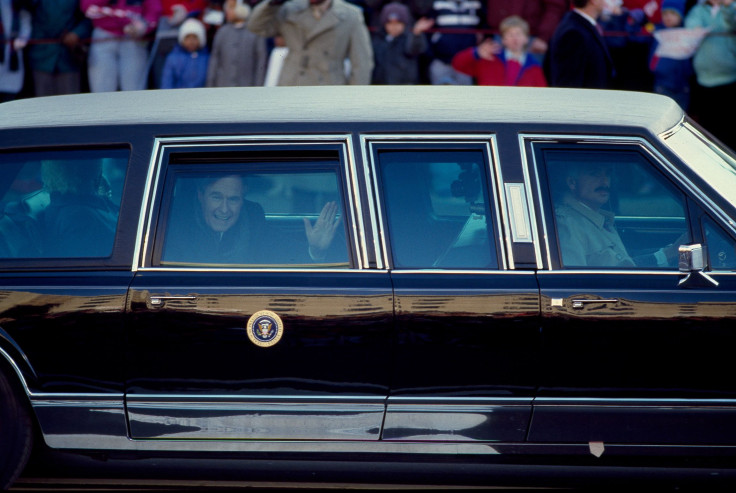George H W Bush Net Worth: Sick 41st President Has Up To $26M To His Name

As real estate billionaire Donald Trump prepares to take the highest office in the U.S., another former corporate executive-turned-politician will be missing his inauguration ceremony Friday, and, unlike a growing list of Congress members, he won’t be protesting the president-elect.
Former President George H. W. Bush, the second wealthiest living president—and soon to be the third-wealthiest—was hospitalized, along with his wife, former First Lady Barbara Bush, and later admitted to an intensive care unit Wednesday, a spokesperson said.
Bush, like Trump, started his career in business. After graduating from Yale University with an economics degree in 1948, the former Navy pilot worked in the oil industry for a few years before founding the Zapata Petroleum Corporation. He later became president of a subsidiary of the Texas-based company, but had to divest his $1.1 million share upon becoming vice president to Ronald Reagan in 1988.
More recent estimates of Bush’s wealth have soared much higher to at least $23 million, making him the second wealthiest living president, behind Bill Clinton, who Time Magazine estimated had about $38 million to his name as of 2015. The 41st president’s older son, George W. Bush, came in third, with $20 million. When Trump officially takes office Friday, he’ll bump everyone down a rank, with his estimated net worth of $3.7 billion. The actual total value of Trump’s assets remains murky, as he has yet to release his tax returns.
Taking into account Bush’s extensive property in Kennebunkport, Maine—often referred to as the “Bush compound”—the financial news site 24/7 Wall Street pegged his wealth at $26 million in a 2010 list of presidents’ estimated total assets.
One factor aiding his wealth accumulation was Bush’s participation in the market for paid speeches. While it’s unclear how much he made from giving talks to schools, businesses and organizations, he wasn’t shy in terms of admitting that the practice provided him with a major source of income.
At a Nov. 7, 1989 press conference, marking his first year in office, a reporter mentioned Reagan received $2 million for delivering speeches in Japan. The reporter then asked Bush whether he would endorse accepting such speaking fees. “I have no problem with that, provided it’s not overdone,” Bush responded at the time. “Everybody’s got to make a living.”
© Copyright IBTimes 2024. All rights reserved.






















